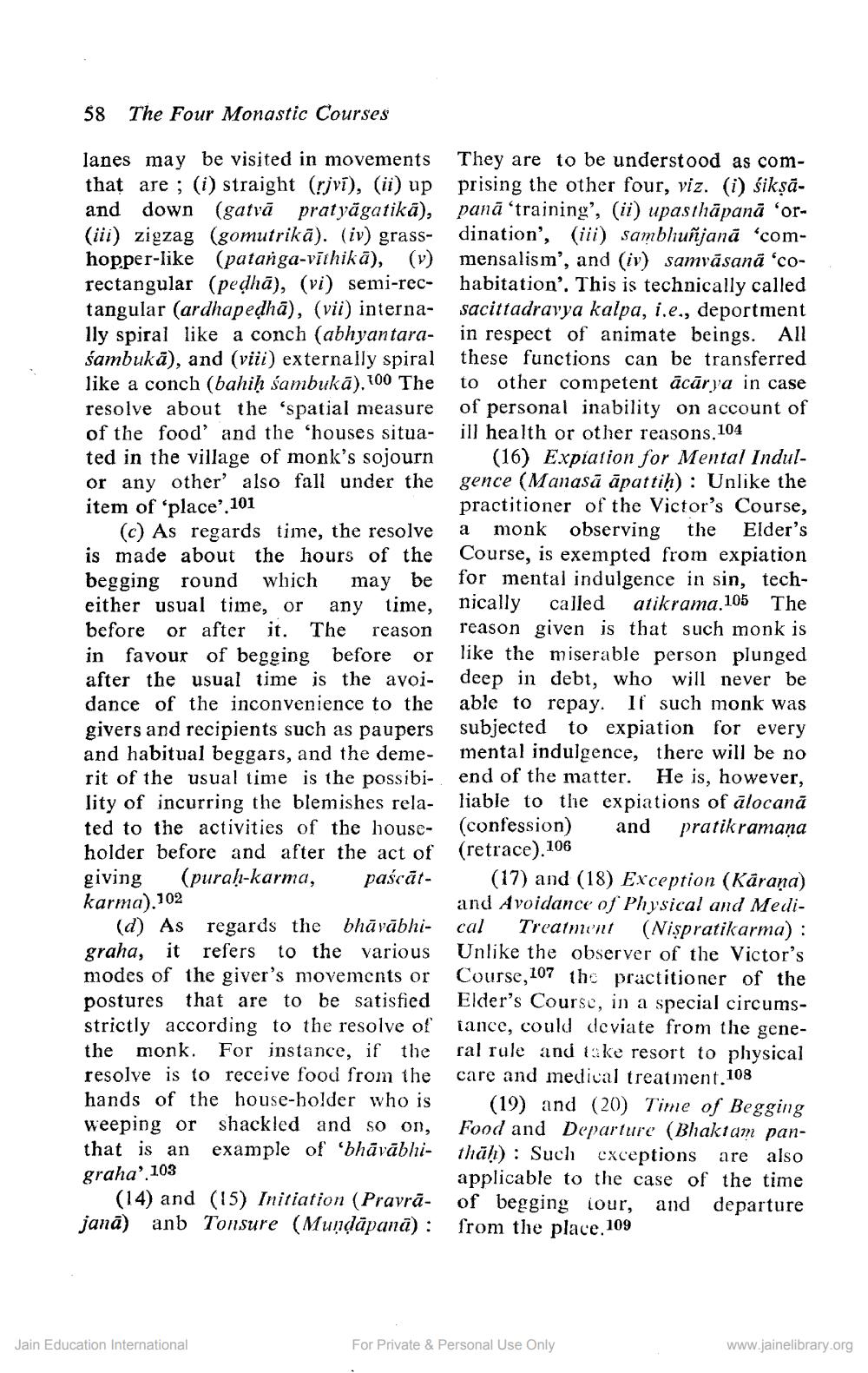________________
58
The Four Monastic Courses
lanes may be visited in movements They are to be understood as comthat are ; (i) straight (rivi), (ii) up prising the other four, viz. (i) śikṣāand down (gatvā pratyāgatikā), panā 'training', (ii) upasthāpanā 'or(iii) zigzag (gomutrikā). (iv) grass- dination', (iii) sambluñjanā 'comhopper-like (patanga-vīthikā), (v) mensalism', and (iv) samvāsanā 'corectangular (pedhā), (vi) semi-rec- habitation'. This is technically called tangular (ardhapedhā), (vii) interna- sacittadravya kalpa, i.e., deportment lly spiral like a conch (abhyantara- in respect of animate beings. All sambuka), and (viii) externally spiral these functions can be transferred like a conch (bahiḥ śambukā), 100 The to other competent ācārya in case resolve about the 'spatial measure of personal inability on account of of the food and the 'houses situa- ill health or other reasons. 104 ted in the village of monk's sojourn (16) Expiation for Mental Indulor any other also fall under the gence (Manasā āpattih) : Unlike the item of 'place’.101
practitioner of the Victor's Course, (c) As regards time, the resolve a monk observing the Elder's is made about the hours of the Course, is exempted from expiation begging round which may be for mental indulgence in sin, techeither usual time, or any time, nically called atikrama.105 The before or after it. The reason reason given is that such monk is in favour of begging before or like the miserable person plunged after the usual time is the avoi- deep in debt, who will never be dance of the inconvenience to the able to repay. If such monk was givers and recipients such as paupers subjected to expiation for every and habitual beggars, and the deme- mental indulgence, there will be no rit of the usual time is the possibi- end of the matter. He is, however, lity of incurring the blemishes rela- liable to the expiations of ālocană ted to the activities of the house- (confession) and pratik ramana holder before and after the act of (retrace).106 giving (purah-karma, paścăt- (17) and (18) Exception (Kärana) karma).102
and Avoidance of Physical and Medi(d) As regards the bhāvābhi- cal Treatment (Nispratikarma): graha, it refers to the various Unlike the observer of the Victor's modes of the giver's movements or Course, 107 the practitioner of the postures that are to be satisfied Elder's Course, in a special circumsstrictly according to the resolve of tance, could deviate from the genethe monk. For instance, if the ral rule and take resort to physical resolve is to receive food from the care and medical treatment. 108 hands of the house-holder who is (19) and (20) Time of Begging weeping or shackled and so on, Food and Departure (Bhaktam panthat is an example of 'bhāvābhi- thāh) : Such exceptions are also graha'. 103
applicable to the case of the time (14) and (15) Initiation (Pravrā- of begging iour, and departure janāanb Tonsure (Mundāpanā): from the place. 109
Jain Education International
For Private & Personal Use Only
www.jainelibrary.org




